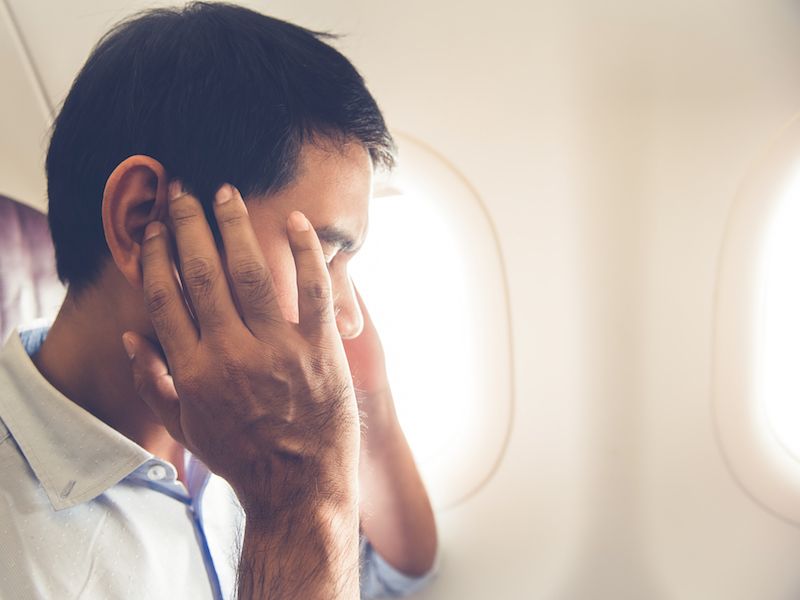
You have good days, and you have bad days, that’s par for the course for those with tinnitus but why? Tinnitus is the medical name for ringing in the ears, a condition more than 45 million Americans experience, according to the American Tinnitus Association, and 90 percent of them also have some degree of hearing loss.
None of that explains why the ringing is intrusive some days and almost non-existent on others. It is not entirely clear why this happens, but some common triggers might explain it.
What Is Tinnitus?
Tinnitus describes a condition where the patient hears phantom noises such as:
-
Ringing
-
Buzzing
-
Clicking
-
Hissing
-
Roaring
You hear it, the guy sitting next to you doesn’t, which is part of what makes tinnitus so disturbing. The noise can vary in pitch and volume, too. One day it might be a roar and the next day be gone completely.
There are two kinds of tinnitus:
-
Subjective – That means only you hear it. This is the most common form, and it relates to hearing loss due to a middle or inner ear damage.
-
Objective – Your doctor can hear the noise too with special instruments used in an examination. Typically, this form of tinnitus indicates a medical problem with the blood vessels, bones or muscles in the ear.
What Causes Tinnitus?
Changes in a person’s hearing are the most common cause. These changes might be due to:
-
Aging
-
Noise trauma
-
Earwax build up
-
Ear bone changes
There are other possible causes, as well, such as:
-
Meniere’s disease
-
TMJ problems
-
Head injury
-
Acoustic neuroma
-
Atherosclerosis
-
Tumor in the head or neck
-
High blood pressure
-
A problem with the carotid artery or jugular vein
For a small percentage of people, there is no apparent reason for them to have tinnitus.
If your tinnitus is new, see your doctor and find out what is going on with your ears. The problem might be something treatable or even a symptom of a life-threatening condition like high blood pressure or heart disease. It might also be a side effect of a new medication.
Why Does the Ringing Get Worse on Some Days?
It’s a bit of a medical mystery as to why some days are worse than other for those with tinnitus. The reason might be different for each person, too. There are common triggers that might explain it, though.
Loud Events
Loud events like concerts, club music, and fireworks are enough to aggravate your tinnitus. The best option is to wear hearing protection if you expect a lot of noise. They make earplugs, for example, that will allow you to enjoy music at a concert but reduce the effect it has on your ears.
You can also stay away from the source of the sound. For example, don’t stand next to the speakers at a concert or up front at a fireworks display. Combined with hearing protection, this could reduce the effect.
Loud Noises at Home
Stuff around the house can be just an aggravating as a loud concert. For instance, mowing the lawn is enough to trigger tinnitus. Consider other things you do at home that might be the problem:
-
Laundry – If you fold clothes while the washer is running, for example.
-
Woodworking – The tools you use are enough to cause a problem
-
Wearing headphones – It might be time to lose the earbuds or headphones. Their job is to increase the volume, and that might be irritating your ears.
If there are things you can’t or don’t want to avoid like woodworking, wear hearing protection.
Workplace Noise
Loud noises on the job have the same effect as a concert or the lawnmower. It’s especially important to wear hearing protection if you work in construction or are around machines. Talk to your employer about your ear health; they might provide the hearing protection you need. Spend your off time letting your ears rest, too.
Changes in Air Pressure
Most people have experienced ear popping when they fly. The shift in pressure combined with the noise from the plane engines can lead to an increase in tinnitus. If you are traveling, take some gum with you to help equalize the air pressure and consider hearing protection.
You can experience changes in pressure without leaving your home, as well. If you have sinus problems, for example, consider taking medication to help relieve them.
Medication
Speaking of medication, that might also be the problem. Certain drugs are ototoxic, meaning they affect the ears. Some common medications on the list include:
-
Over-the-counter pain relievers
-
Antibiotics
-
Diuretics
Talk to your doctor if you experience a worsening of tinnitus after you start taking a new prescription. Switching to something else might be possible.
Tinnitus is an annoyance for some people, but for others, it can be disabling. The first step is to find out why you have it and then look at ways to control it from day to day.
